Pōe’s homegrown talent is an essential pillar of the Husa Sounds roster, and we continue to look towards his projets with admiration, curiosity, and memorable dancefloor experiences.
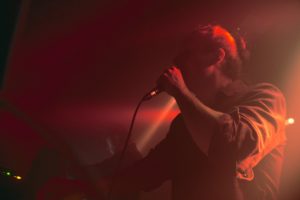
Pōe is gently and assuredly making his local mark, warming decks for an alluring selection of artists, including Be Svendsen and HVOB. His latest release, a fetching indie dance ride, flowered on the charismatic fryhide label, complete with a remix from HOSH himself. Pōe’s emotional, vocal and musical palette is versatile; you can expect many things when he sets out to capture a feeling and translate it into sound, from the lush dark grooves of Haze to the ambient swishes of When it Rained Endlessly or the dubby realms of Reeker.
Pōe will be wrapping up this summer with a show at MUTEK’s outdoor Experience stage; we’re excited to see his world come alive in the experimental lands of this forward-looking festival. Until then, there’s a lot of his releases to groove to, and more exciting ones on the way…
HS: These recent times have been quite busy for you as an artist, let’s start with that. What have you been up to recently and what are the main changes you’ve undergone in the past months?
Pōe: Moving my studio to a dedicated space was a big step for my process. Plus getting a piano and mainly exploring vocals more and more.
HS: What’s the story behind Pōe, and how do you communicate it?
P: There’s my whole creative side that pushes the “fantasy world” of Pōe. I wrote a good 7 pages and look forward to expanding it as I go. Then there’s my pragmatic side that makes songs and doesn’t overcomplicate things. I guess such duality is part of the story?
HS: You have a pretty layered musical background; tell us about what made it into the Pōe project and what didn’t.
P: I brought back guitar and vocals, and I’m really inspired by this direction. Piano was added two years ago and I look forward to asking for a grand piano on my stage plot… perhaps in a few years, when my playing gets proper (hah!).
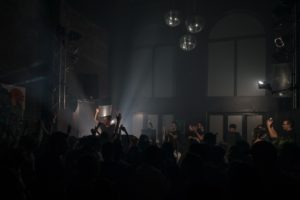
HS: What role does Quebec / Montreal play in your sound?
P: I’ve been really interested into the pre-colonization era of America, which was and is still called by natives Turtle Island. We are quite lucky here to have much untouched nature and they have this strong will to preserve it. Something magical about getting lost in the woods with zero human-machine noise around.
HS: What was your creative process working up to your recent fryhide release? The label has a very defined musical identity, how do see yourself fitting into it?
P: I like the idea of being an “indie” singer/songwriter with a techno influence, it’s always a consideration when I tinker with compositional ideas. Fryhide was somehow in the back of my mind when I did Through Glass, but I mainly do my thing and they pick the songs they see fit. I like this way of working, I don’t have to change or compromise anything I do.
HS: What other labels have you been following recently that you find interesting?
P: Archives and Eilean Rec are my two favourites. You should check them out.
HS: How have you developed your live show over the years? What have been the biggest challenges in doing so?
P: Replacing real musicians? The chemistry you get when playing and jamming compositions. Developing a live show is somehow more a programming act than an actual musical act, if that makes sense. I have to prepare my tools in advance, choose what I bring and what I bounce to audio and playback. Balancing the Live and the Playback to keep room for showmanship.
HS: You’re announced as a performer for the 20th edition of MUTEK Montreal. Congratulations! MUTEK is known for experimentalism and pushing boundaries; how are you working towards aligning your performance with this?
P: Since I’ve been exploring my vocals and I feel pretty comfortable translation ideas into vocal sounds, thats the direction I’ll head the whole thing. I’ll spend most of summer preparing that.
HS: Was there a decisive moment, a turning point in your musical orientation?
P: When I became vegetarian.
HS: Tell us about your studio setup.
P: Its a kitchen table with speakers, a piano and my growing library.
HS: You’re very influenced by the natural flow of your environment and nature – how does that feed into your creative process?
P: Recently I had a strong emotional reaction to someone I met, and ended up doing a song about the new moon. When I was walking back from my studio, I saw the new moon and sat down, wrote lyrics and recorded them the next morning. Things like that really inspire me to write.
Catch Pōe carving pathways TONIGHT at Société des Arts Technologiques.



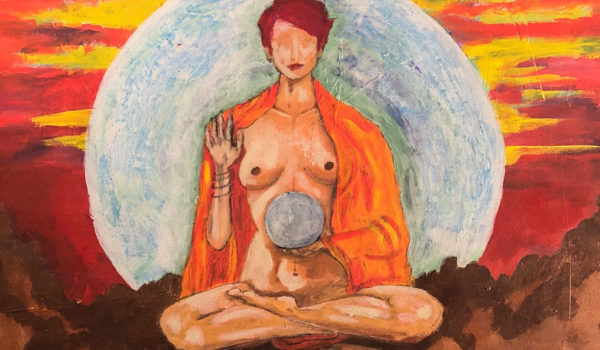
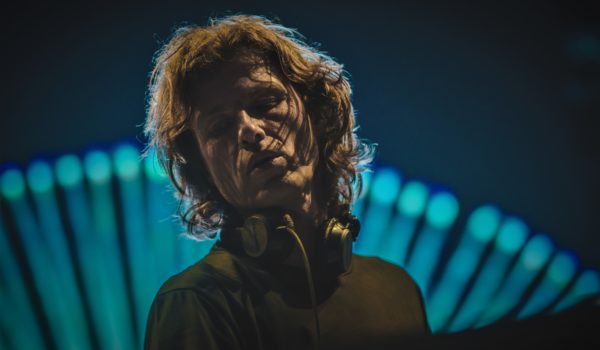
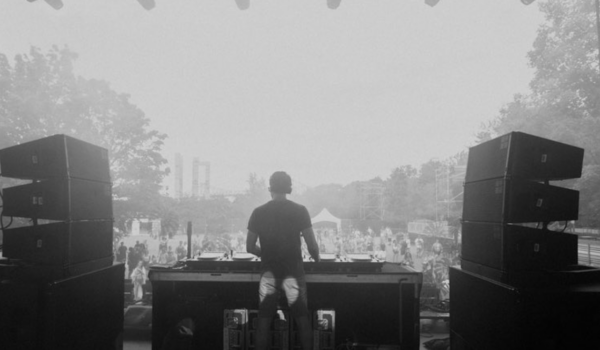
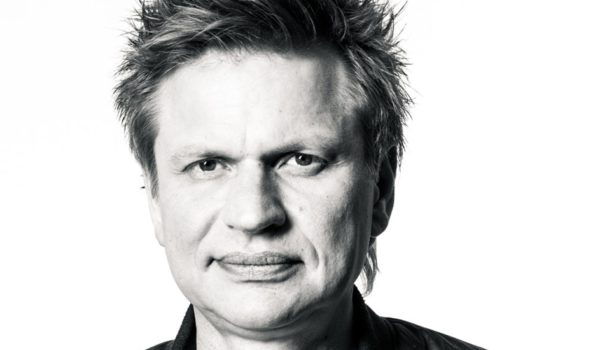
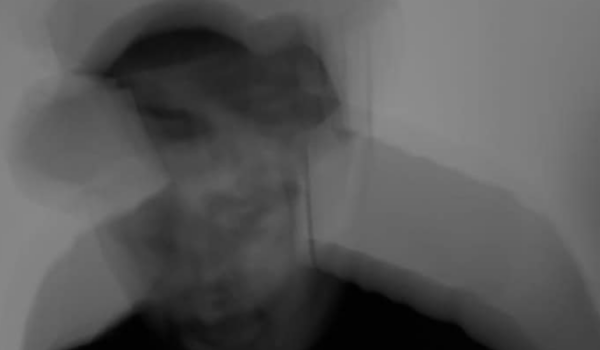
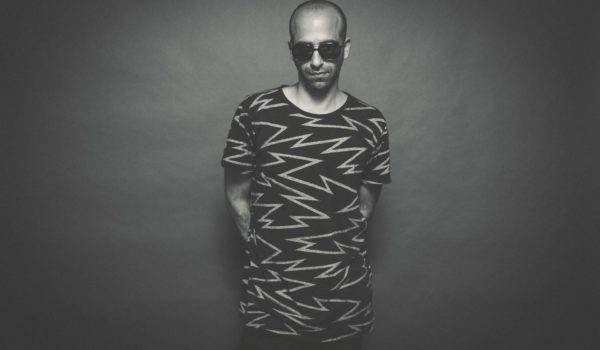
Comments